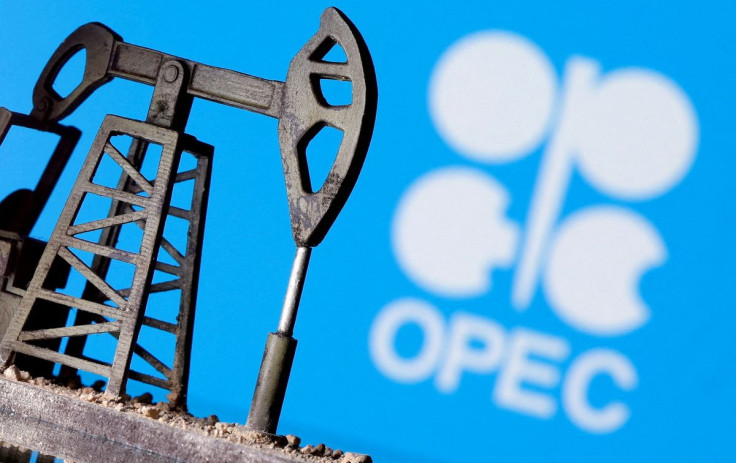OPEC+ Might Have To Raise Oil Output So Market Doesn't Overheat, Kazakhstan Says

OPEC+ might have to raise oil production to avoid market overheating, OPEC+ member Kazakhstan said on Wednesday, as the group of oil producers meets amid U.S. pressure to add barrels to the market while most members have already exhausted their output potential.
"We have always said that the preferred price corridor is $60-80 per barrel. Today the price is $100. So we might have to raise output to avoid overheating," Kazakh energy minister Bolat Akchulakov told reporters.
The market has been largely expecting OPEC+ to keep output steady or opt for a slight increase.
Two OPEC+ sources said on Wednesday the group was highly likely to consider a "modest increase" of output with one source saying it will be lower than 300,000 barrels per day.
Three other OPEC+ sources said they still saw little chance for an output policy change.
The United States has put OPEC leaders Saudi Arabia and United Arab Emirates under pressure to pump more oil to help rein in prices boosted by rebounding demand and Moscow's invasion of Ukraine.
U.S. and Western sanctions on Russia have caused prices of all types of energy to soar, resulting in inflation at multi-decade highs and central bank interest rate hikes.
U.S. President Joe Biden travelled to Riyadh last month to mend ties with Saudi Arabia, which collapsed after the murder of journalist Jamal Khashoggi four years ago.
U.S. inflation hit 40-year highs this year and threatens Biden's approval ratings unless gasoline prices fall.
Saudi de-facto ruler, Crown Prince Mohammed bin Salman, whom Western intelligence accused of being behind the Kashoggi murder, also travelled to France last month as part of efforts to rebuild ties with the West.
On Tuesday, Washington approved $5.3 billion worth of defensive missile sales to the UAE and Saudi Arabia but it has yet to roll back on its offensive weapon sales ban to Riyadh.
OPEC has been increasing output in line with its targets by about 430,000-650,000 barrels per day a month in recent months and has refused to switch to bigger output increases.
Group sources have cited a lack of spare capacity among members to add more barrels as well as the need for further cooperation with Russia as part of the wider OPEC+ group.
"It seems unlikely OPEC+ will do anything when it meets later today," said Callum Macpherson from Investec, citing rising concerns about a slowing global economy and a lack of spare capacity.
"OPEC+ is struggling to meet the levels its production limits have now been raised to," he said, adding that a surprise decision to raise production would put oil under further pressure to fall below $100 per barrel.
Benchmark Brent oil futures were little changed on Wednesday, trading near $100 per barrel. [O/R]
The meeting on Wednesday will discuss production policies from September and started with a key ministers' meeting at around 1100 GMT.
By September, OPEC+ was meant to have wound down all of the record production cuts it implemented in 2020 after the pandemic slashed demand.
By June, however, OPEC+ was almost 3 million barrels per day below its quotas as sanctions on some members and low investment by others crippled its ability to boost output.
Only Saudi Arabia and the UAE are believed to have some spare capacity left to increase production.
French President Emmanuel Macron has said he had been told that Saudi Arabia and the UAE had very limited ability to increase oil production.
© Copyright Thomson Reuters 2024. All rights reserved.


















